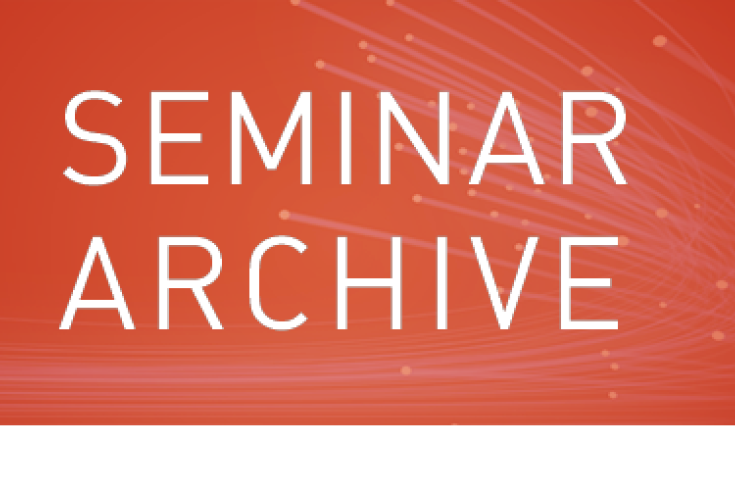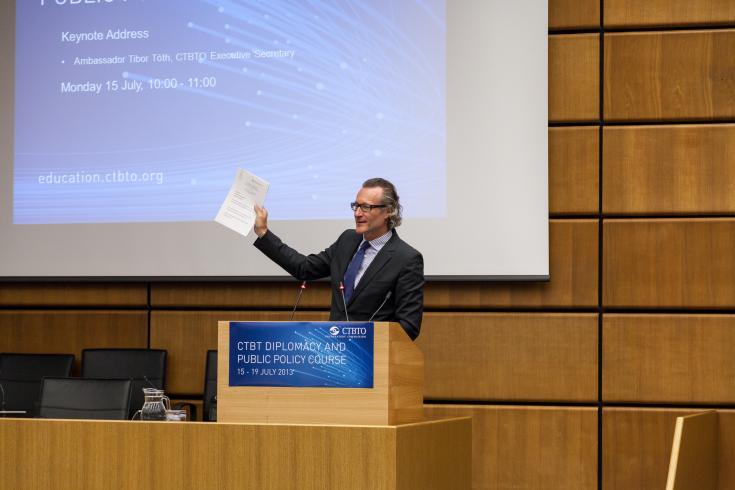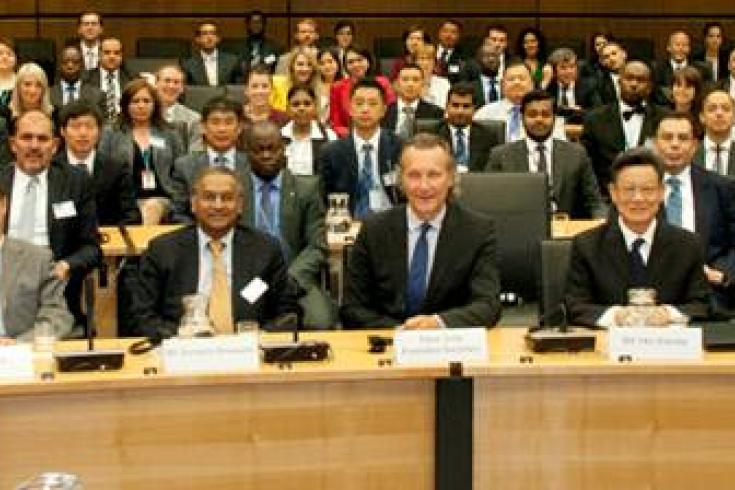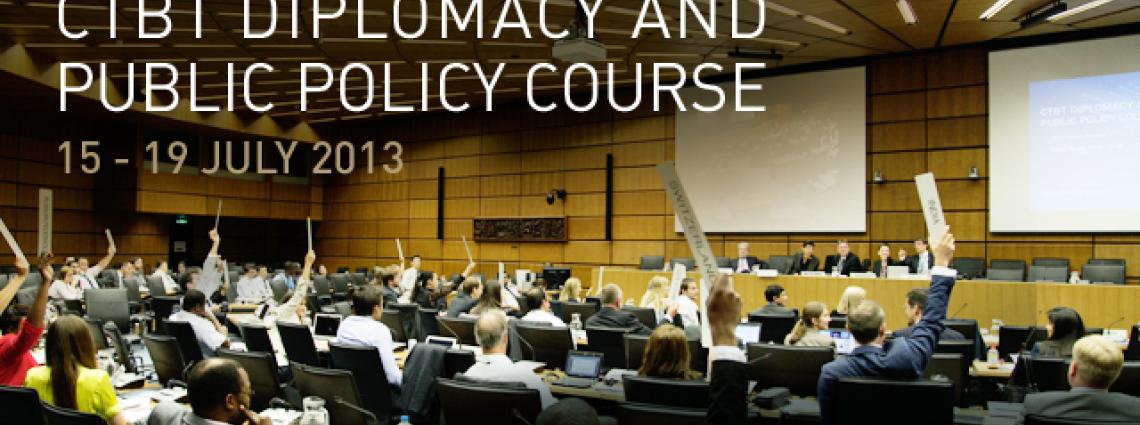CTBT Public Policy Course: Proven Treaty, Political Challenge
Around 600 participants followed the course from 15 to 19 July either in person at the Preparatory Commission for the Comprehensive Nuclear-Test-Ban Treaty Organization (CTBTO) in Vienna or online. Participants included government officials, students, academics and scientists, including from a number of non-ratifying Annex 2 States – those who have yet to ratify for the CTBT’s entry into force.
Executive Secretary Tibor Tóth, in his last public speaking engagement in his current capacity, pointed to the CTBT and its verification regime as an example of how a global approach can be used to address some of the major emerging security challenges of the 21st century, summing up his conclusion in the two words: “global works”.


Discussing the current status of the nuclear non-proliferation regime, former UN Undersecretary General for Disarmament Affairs Jayantha Dhanapala remarked that “the only weapon of mass destruction that has not been rendered illegal is the nuclear weapon, which is by far the most destructive weapon invented”. Other highlights included a description of nuclear testing programmes from history by James Acton from the Carnegie Endowment, including some of the surprising applications of “Peaceful Nuclear Explosions”, which today fall under the CTBT’s ban.
Chinese Ambassador Sha Zukan
Former UN Undersecretary General Jayantha Dhanapala
Vote during the simulation of the Executive Council deliberations
The simulation made me think about things like how the radionuclide information would affect a real decision to go forward with an On-Site Inspection.

29 Jul 2013
